The world last week: When personal calculations overshadow the common interest
(Baonghean) - Announcing the "red lines", British Prime Minister Boris Johnson expressed hope to reach a trade agreement with the European Union (EU), but was ready to stop the dialogue if the two sides failed to make progress. Despite the complicated developments of the Covid-19 pandemic, senior leaders of China and Japan are urgently preparing for President Xi Jinping's visit to Tokyo next April. These are the notable international issues of the past week.
Disagreements around the “red line”
Trade talks rarely start with both sides on the same page, but tensions between the EU and the UK have risen significantly in recent weeks, with Brussels accusing London of backtracking on the bloc’s negotiating objectives. This comes after the UK announced its “red lines” to the EU on February 27, with British Prime Minister Boris Johnson even saying he was ready to stop talks if progress is not made by June 2020. Raising the possibility of a chaotic Brexit in the coming period.
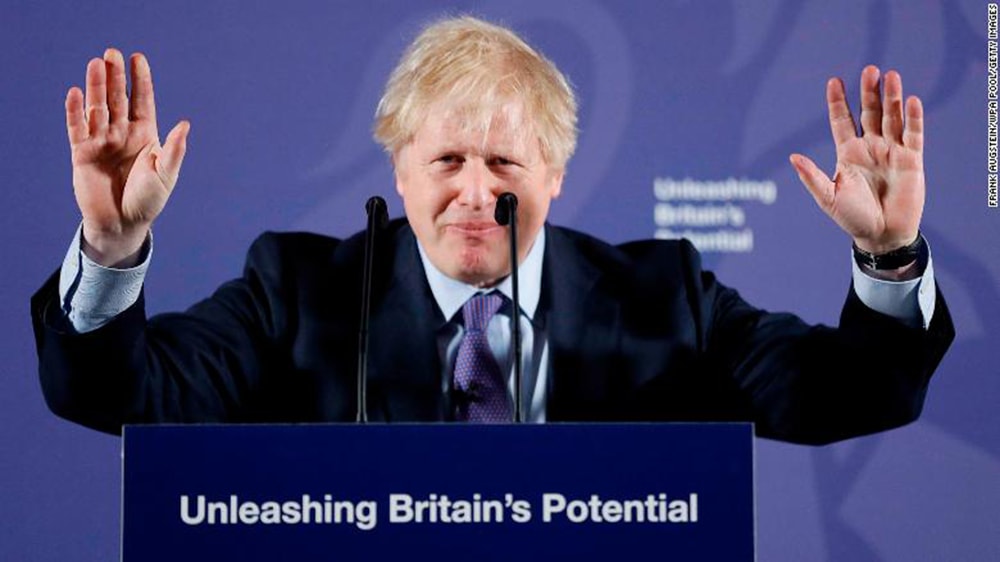 |
| British Prime Minister Boris Johnson made clear his stance on a trade deal with the EU. Photo: CNN |
Key points in Britain's "red lines" include not negotiating any arrangement that would take away Britain's "control over its laws and political life." The UK would seek a trade relationship with the EU similar to the trade deals it has with Canada, Japan and South Korea. These deals remove most tariffs and countries are not required to adhere strictly to EU rules.
EU chief negotiator Michel Barnier made it clear that Prime Minister Johnson would not reach a trade deal similar to the one between the EU and Canada, because the UK is “on the doorstep of the EU” and the two sides have a much larger trade relationship. “Our relationship with the UK and Canada is very different. The flight from Brussels to London takes only 70 minutes, while it takes 10 hours to get to Ottawa.” This EU view immediately met with resistance from British officials. British Cabinet Office Minister Michael Gove said that geographical proximity is not a decisive factor in any free trade agreement between neighboring countries and major economies.
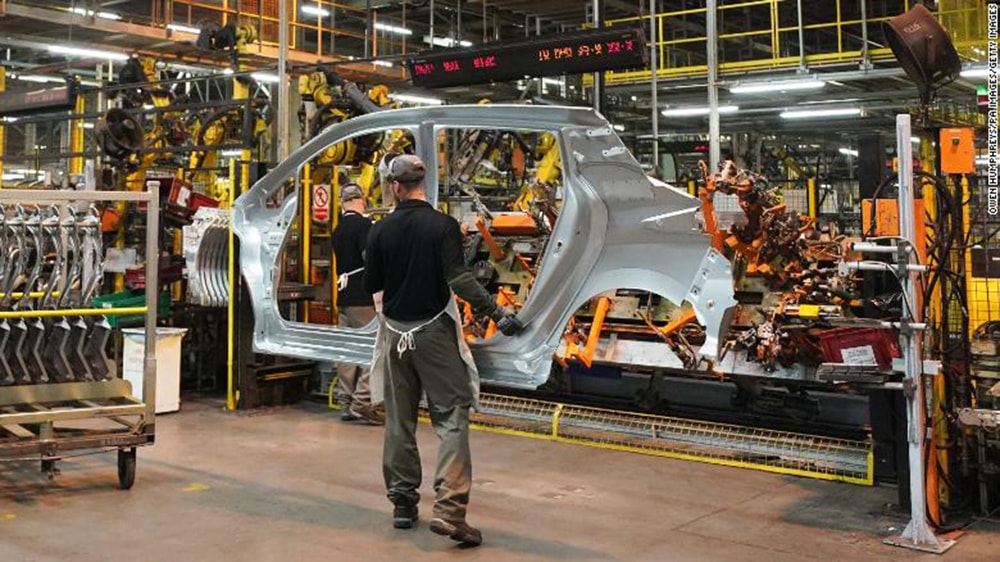 |
| Car manufacturing in Sunderland, UK. Photo: CNN |
Under the previous agreement, both sides agreed that the future relationship must ensure “fair and equitable competition, including strong commitments to ensure a level playing field” by maintaining existing standards across sectors, as well as government support for companies, and combating climate change. The UK government has committed to pursuing a fundamental free trade agreement that would maintain zero tariffs and quotas on goods. But the terms the UK has proposed have created new friction, an outcome that businesses have long feared. Failure to reach a deal could expose UK companies to new tariffs, threaten their supply chains, and make their products and services more expensive.
Even if Brussels and London can make early progress, other contentious issues such as fishing rights threaten to derail trade talks. The EU wants to maintain its fishing rights in British waters, while the UK wants full oversight of all its fisheries as an independent coastal state.
Observers say the opposing views of the two sides suggest that the upcoming negotiation phase could face as many obstacles as the Brexit deal negotiations that lasted for the past three years.
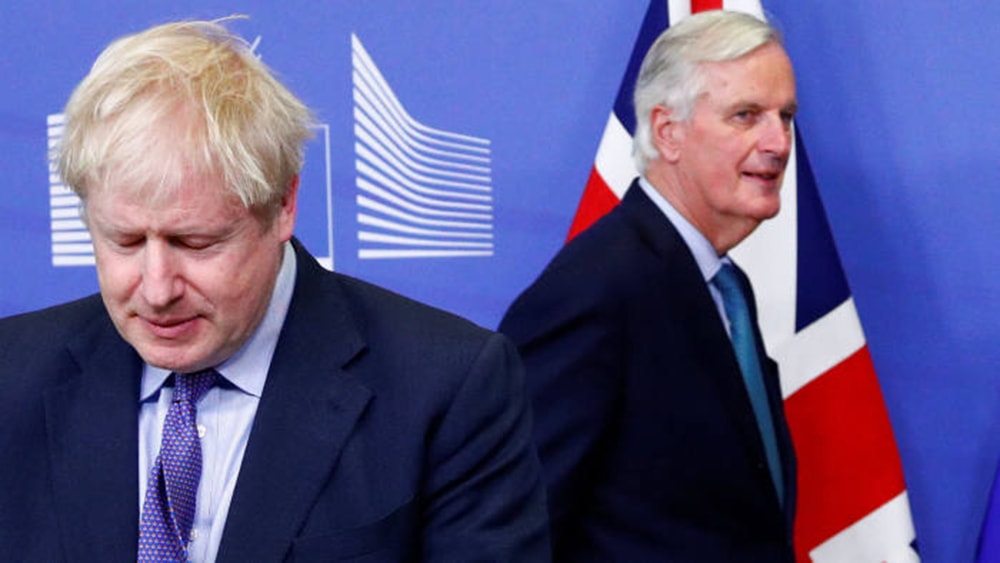 |
| Britain and the EU continue to fall into tension when putting forward views on the trade deal. Photo: Financial Times |
Warming up political relations
Despite speculation that Chinese President Xi Jinping’s state visit to Japan may be postponed due to the Covid-19 outbreak, senior leaders from both sides are confident that the spring 2020 visit will still take place. The visit is considered “extremely important” for promoting bilateral relations.
Chinese Politburo member Yang Jiechi, the Communist Party's top official in charge of foreign affairs, held meetings with Japanese Foreign Minister Toshimitsu Motegi, national security adviser Shigeru Kitamura, and even had separate talks with Japanese Prime Minister Shinzo Abe. If carried out in April, Xi Jinping will be the first Chinese president to pay a state visit to Japan since 2008, after Hu Jintao. The visit, which includes a meeting with Emperor Naruhito and a banquet at the Imperial Palace, is seen as a symbol of the recent improvement in Japan-China relations, erasing the traces of hatred in the context of sovereignty disputes in the East China Sea, leading to a "cold" political state.
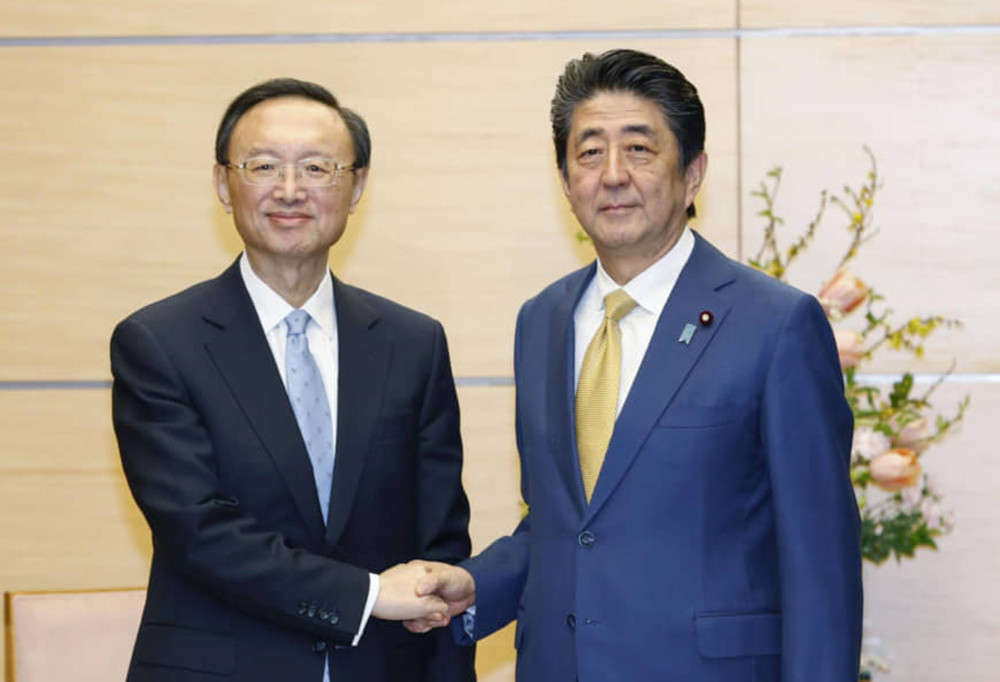 |
| Chinese Politburo member Yang Jiechi holds private talks with Japanese Prime Minister Shinzo Abe. Photo: Kyodo |
However, analysts say that in reality, not only is the timing uncertain, but the organization of the negotiations is also controversial. Many argue that Xi Jinping's policies do not have the same direction and interests as Japan. On the one hand, the Tokyo government remains committed and expresses its desire to expedite Xi Jinping's visit, which will take place as originally planned. In addition, Prime Minister Abe also emphasized Japan's strong concerns about the disputed territory. Abe's government is blowing both "hot" and "cold" winds, showing restraint in the face of China's actions, while emphasizing the importance of promoting dialogue between the two sides and resolving common issues. Nikkei newspaper called this optimistic attitude of the Japanese government Tokyo's "mind game".
The core topic of the meeting will still be the documents surrounding the territorial dispute in the East China Sea. The two sides are trying to resolve or at least neutralize the contentious issues, laying the foundation for the next decade of Sino-Japanese relations. However, Tokyo and Beijing have not yet agreed on the content of a joint statement. Therefore, for Japan, the big question is whether President Xi Jinping's visit will actually make progress on the Senkaku/Diaoyu Islands issue. Moreover, Tokyo wants to make sure that the content of the upcoming agreement will be more progressive than the documents signed a decade ago.
At that time, the two sides agreed to build a mutually beneficial strategic relationship, emphasizing their equality and acknowledging each other's power. But now, China's economic rise has eclipsed Japan's, and Beijing is seeking to firmly establish its position at the center of Asia. Therefore, for Japan, the biggest key is to reach an agreement that affirms the two countries' equal status, even as China continues to rise.
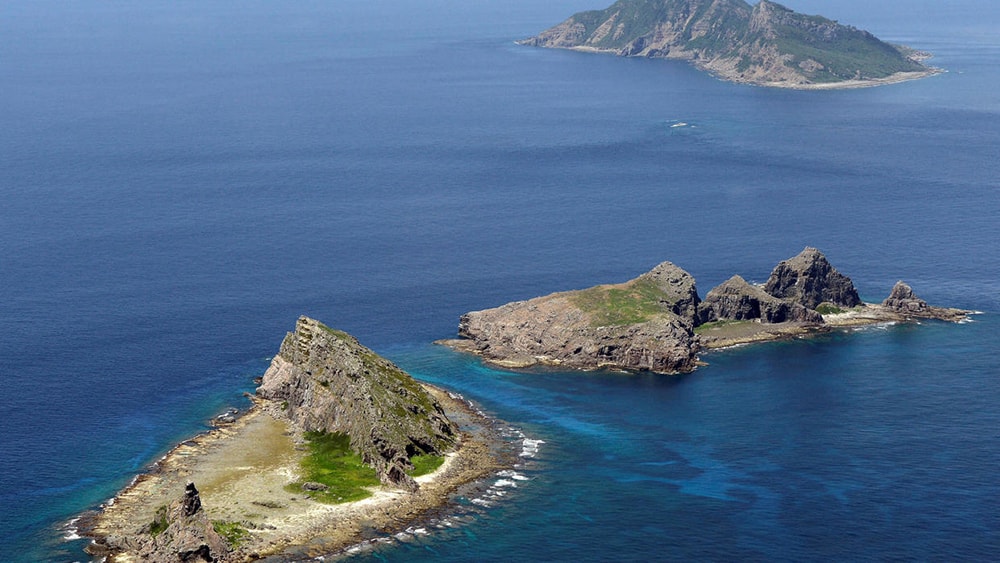 |
| Senkaku/Diaoyu Islands. Photo: Reuters |
China, on the other hand, has shown a lack of willingness to compromise. Beijing’s top priority is to use the visit to Japan to further enhance President Xi Jinping’s prestige and status. Beijing seems to want Tokyo to accept the partnership that has been traditionally built over the past two decades, while also building some typical benefits.
Despite their differing views, it is likely that the two countries will eventually agree to sign the agreement and announce it during Xi Jinping’s upcoming visit. Ultimately, both sides want to demonstrate that their in-depth diplomatic dialogue has produced concrete results and elevated cooperation on common issues.

